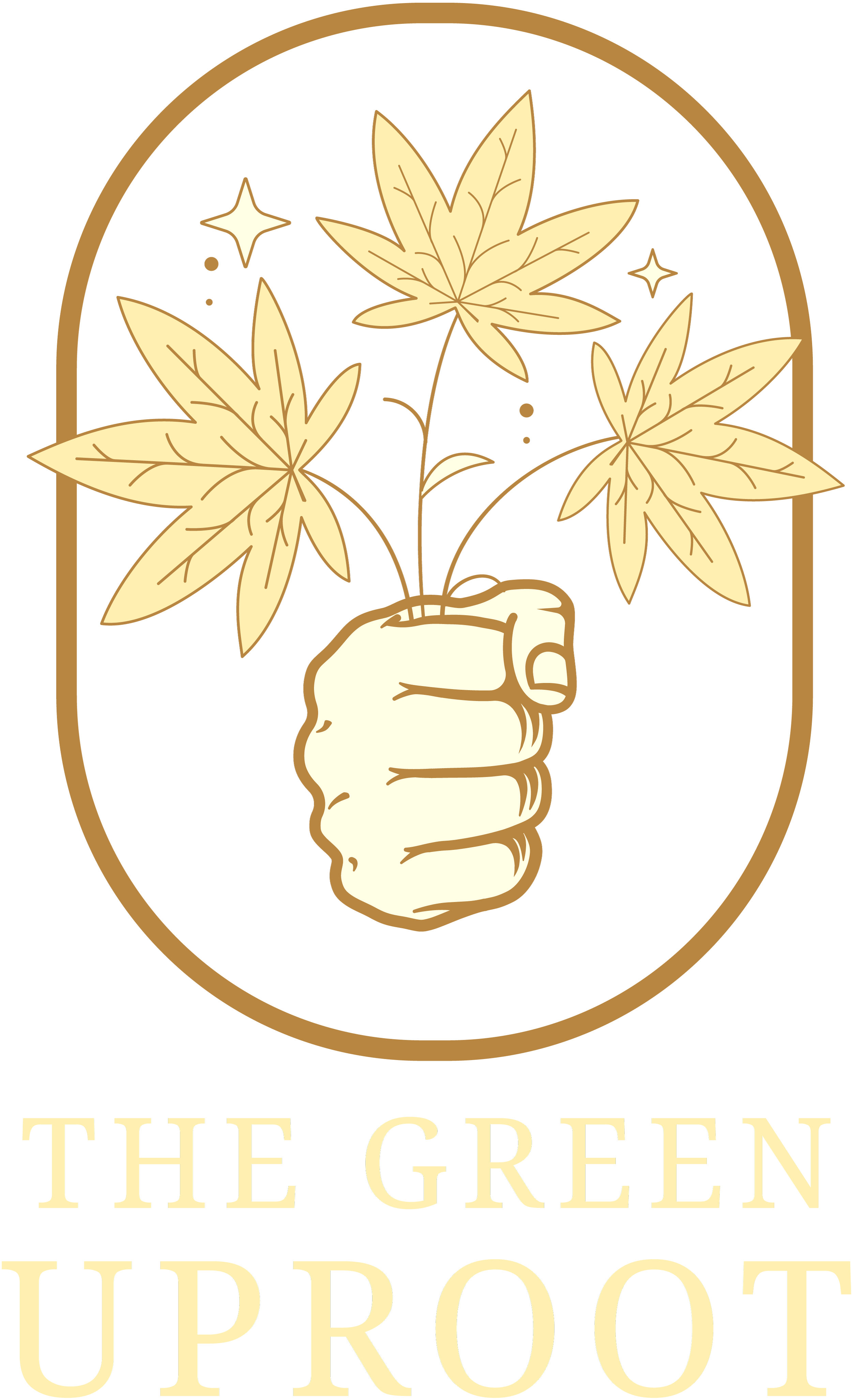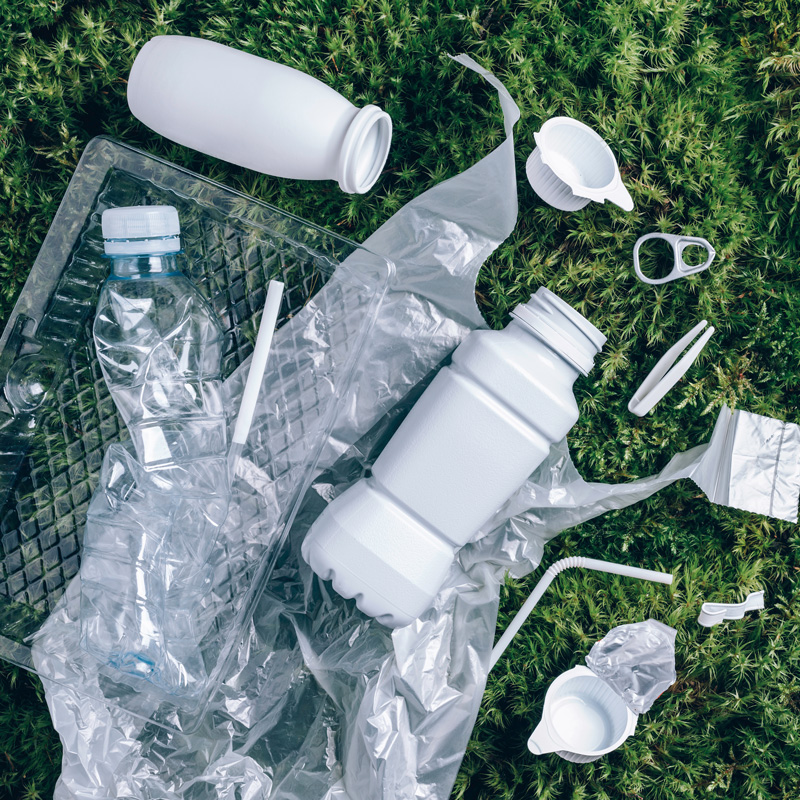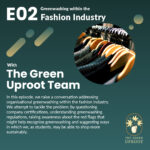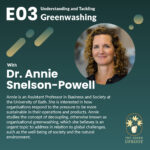Plastic packaging in the UK is a major contributor to the country’s waste, making up nearly 70% of the country’s plastic waste (1). Studies have shown that green packaging can affect consumer decisions during purchasing. Green packaging boosts the perceived value of the product and the brand, which impacts attachment to brands and the trust we place in them (2). There is particularly a large influence on e-commerce (trading of goods and services on the internet) companies and consumers (3). Multiple companies use greenwashing as their marketing strategy, using tactics that present packaging as having a lower environmental impact, but it is often either difficult or impossible to recycle or is made using a very small amount of ocean-bound plastic (1).
Coca-Cola Co:
- Released bottles made from 25% marine plastic and spent millions of pounds to advertise these, all while omitting they are the world’s biggest plastic polluter with 2.9 million tonnes of plastic used annually.
- Made a commitment to collect the equivalent of 100% of their packaging by 2030 but have made attempts to undermine deposit return legislation in multiple areas such as the state of Georgia, China, and Kenya. This legislation would reduce marine litter and help Coca-Cola Co. to meet its collection pledge (4).
Tesco:
- Tesco has started a soft-plastic take-back scheme in some stores to combat soft-plastic waste – this type of plastic waste is hardly recycled; at least 96% of UK soft plastic packaging was not recycled in 2020.
- A report found this scheme to be unimpressive. It has limited accessibility due to this implementation in only a few stores.
- The returned plastic is also unlikely to be recycled. Euroley Recycling Ltd., the waste exporter contracted by Tesco, was found to be breaching UK export regulations by shipping waste to five sites in Turkey.
- These companies have, in the past, mislabelled the waste they are exporting. This is to allow them to get around restrictions put in place while having little-to-no transparency about the destination of the waste.
- The report also noted a lack of consistency between the different countries in that Tesco operate. They were different in their transparency and performance; commitments; and support for government policy regarding plastic packaging and recycling (5).
Bioplastic:
- ‘Biodegradable’ plastic has been marketed as a better alternative to normal plastic – however, to be defined as biodegradable it just must be made of molecules that can break down naturally in a non-specified time scale. There are a variety of plastics, which vary in the time frame and conditions they degrade in.
- Compostable plastics, such as polylactide (PLA), must break down under industrial composting conditions in less than 12 weeks (European Standard EN 13432). These industrial standards have a specific balance of moisture, air, microorganisms, and heat (often around 60 °C). These conditions are not attainable by being buried in the ground or in a compost heap at home.
- Oxo-biodegradable plastics are conventional plastics that contain additives after a certain timeframe that allow the plastic to react with oxygen. This reaction causes and speeds up its degradation, without the additives it would take hundreds of years. There is some controversy surrounding these plastics as evidence suggests that they do not biodegrade completely as their manufacturers claim. Instead, they break down to form microplastics which remain in the environment, due to this the EU is taking steps to restrict the use of these plastics (6).
References:
- Changing Markets Foundation, 2022. Under wraps? What Europe’s supermarkets aren’t telling us about plastic. Netherlands: Changing Markets Foundation. Available from: http://changingmarkets.org/wp-content/uploads/2022/05/Under-wraps_FULL-REPORT_FINAL.pdf
- Laville, S., 2022. Coca-Cola among brands greenwashing over packaging, report says. Available from: https://www.theguardian.com/environment/2022/jun/30/coca-cola-among-brands-greenwashing-over-packaging-report-says.
- Rokka, J. and Uusitalo, L., 2008. Preference for green packaging in consumer product choices – Do consumers care? International Journal of Consumer Studies, 32(5), pp.516–525. Available from: https://doi.org/10.1111/j.1470-6431.2008.00710.x.
- Tangpuori, A., Harding-Rolls, G., Urbancic, N. and Zallio, X., 2020. Talking trash: the corporate playbook of false solution to the plastic crisis. Netherlands: Changing Markets Foundation. Available form: https://talking-trash.com/wp-content/uploads/2020/09/TalkingTrash_FullReport.pdf
- Thomlinson, I., 2019. Plastic (not) fantastic: Why even biodegradable plastic can still harm the environment. The Independent, 15 May. Available from: https://www.independent.co.uk/news/science/plastic-biodegradable-environment-pollution-a8908226.html.
- Xu, Z., Pan, C., Cai, J., Luo, X.R. and Wu, J., 2021. Driving E-Commerce Brand Attachment Through Green Packaging: An Empirical Investigation. Journal of Electronic Commerce Research, 22(3), pp.178–198. Available from: http://www.jecr.org/sites/default/files/2021vol22no3_Paper1.pdf



